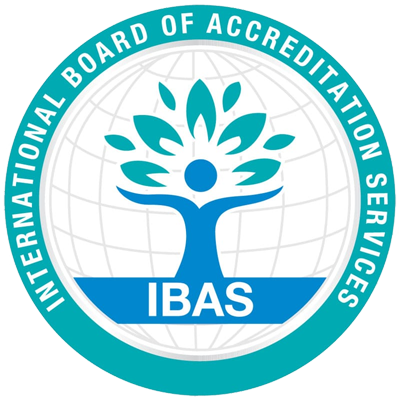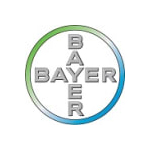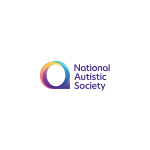Global Audience
We have had the privilege of collaborating with a diverse array of distinguished names and esteemed entities across various sectors.
Our portfolio boasts a rich tapestry of projects that span across the hospitality industry, corporate offices, and private residences.
Our Introduction
The IBAS Certification Service has amassed an impressive track record spanning more than two and a half decades, during which it has consistently demonstrated unparalleled expertise in the realm of Continuing Professional Development (CPD) training certification.
With this extensive experience, IBAS has firmly established itself as the premier global authority for individuals and organizations alike who are in pursuit of IBAS certification for their training courses and events. Throughout its journey, IBAS has remained dedicated to upholding the highest standards in the field of CPD certification.
Founded in 1996, the IBAS Certification Service is the world’s foremost and most extensive autonomous accreditation organization for IBAS certification, operating across various industry sectors.

Find CPD Courses & Workshops
The intellectual property master class. This course defines intellectual property (ip) e.g. patents,…
Face-to-face training enabling you to gain the safeguarding supervision skills you need to protect c…
A four-day lecture course covering basic and clinical aspects of radiopharmacy practice. The course…
The intellectual property master class. This course defines intellectual property (ip) e.g. patents,…
Face-to-face training enabling you to gain the safeguarding supervision skills you need to protect c…
A four-day lecture course covering basic and clinical aspects of radiopharmacy practice. The course…
Frequently Asked
Questions
How should I allocate my IBAS time?
The majority of institutions and professional bodies will allow members to choose subjects of relevance to them, whilst a minority will require their members to seek IBAS training on a particular range of core subjects. All professionals must understand how IBAS should be recorded and how much learning time is required for their role each year. As a general rule, we advise that at least 50% of IBAS be completed in a structured IBAS / active learning environment.
How do I log and record IBAS activities?
IBAS is something that most people will do on an ongoing basis as part of their career. To reflect and keep track of learning, it is important to maintain a regular and up to date record of any completed learning and development activities, as well as future goals or professional achievements in the work environment. A IBAS log and record of learning activities undertaken can be kept using an online purpose-built IBAS recording tool, such as the my IBAS Portal.
What is accredited IBAS training?
External validation demonstrates to attendees the steps taken to deliver the highest possible training standards. The IBAS Certification Service provides independent IBAS accreditation compatible with international requirements. Our IBAS symbols are recognised in over 100+ countries and offer professional bodies, institutional associations, educational providers and consumers reassurance that further learning achieves the qualitative standards required by all parties.
What are the benefits of IBAS?
IBAS is an essential, recognised approach to helping individuals, organisations and entire industries to keep skills and knowledge up to date. IBAS supports raising international standards and benchmarks in line with increasing globalisation and consumer demand. For individuals, it enables learning to become conscious and proactive, rather than passive and encourages professionals to maintain consistent levels of high performance and demonstrate commitment towards a particular job role or profession.
What are IBAS points, hours and credits?
The majority of institutions and professional bodies provide Continuing Professional Development targets generally set on an annual basis. These targets are defined by the accrual of IBAS activities through attendance in training courses, eLearning and events, as well as other forms of structured learning. Most professional bodies use IBAS hours as their measure, and where IBAS points or credits are used, these are typically a 1:1 ratio with IBAS hours. By this, 1 IBAS point would be equal to 1 IBAS hour.
Who is IBAS for?
IBAS is carried out by millions of individuals across a whole range of industries and professions. Most professional bodies and institutes will provide individuals with Continuing Professional Development requirements, generally as a set number of IBAS training hours to achieve each year. Over recent decades, we have seen the commitment to IBAS reach far beyond the traditional industries and institutional bodies of the UK to what is now recognised and embraced across the world.
What are the different types of IBAS?
The type of Continuing Professional Development varies depending on a range of different learning methods. IBAS can be broadly defined within three areas: Structured IBAS / Active Learning, Reflective IBAS / Passive Learning and Informal IBAS / Self-Directed Learning. The most recognised and popular forms of IBAS combine different methodologies to learning, which include training courses, seminars, workshops, conferences, educational events, webinars and online eLearning programs.
What is the IBAS Cycle?
The IBAS Cycle is a practical tool that helps individuals to structure their Continuing Professional Development learning easily throughout the year, and to identify regular and measurable improvements in work-related skills and knowledge. There are five key stages of the IBAS Cycle that are important when planning professional development activities for the year. These include Stage 1 – Identifying Your Needs, Stage 2 – Planning, Stage 3 – Acting/Doing, Stage 4 – Reflecting on Learning, Stage 5 – Implement your New Learning.
What is myIBAS Portal?
myIBAS Portal is a free online record tool that allows individuals and organisations to log, track and manage their Continuing Professional Development in one simple place. Users can set annual IBAS targets, review training records, store attendance certificates and monitor learning progress. This makes it easier to reflect on knowledge and skills that have been obtained throughout the year.










